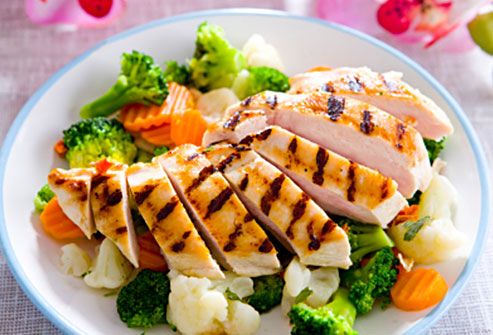
SLIDESHOW
|
Essential Tips to
Manage Diabetes ( courtecy;- web MD )
This tool does not
provide medical advice
|
Essential Tips to
Manage Diabetes
Essential Tips to
Manage Diabetes

1/12
Eat the Foods You Like
You don't have to give up your favorite meals
just because you have diabetes, but you need to know how your choices affect
your blood sugar. A diabetes educator or dietitian can teach you how to count
carbs, read food labels, and size up portions. Those skills will let you
control your diabetes and keep your taste buds happy at the same time.

1/12
Take Control of Your Plate
Want an easy way to get a balanced meal?
Separate your plate into three zones. First, divide it in half. Fill one side
with veggies like spinach, broccoli, carrots, or green beans.
Next, split the empty side into two halves.
Use one for starchy foods such as potatoes, brown rice, quinoa, or whole-grain
bread or pasta. In the last section, add meat or another protein. On top of
that, you can also have an 8-ounce glass of low-fat milk and a half-cup of
fruit.

1/12
Keep a Record
Every day, jot down important info like your
blood sugar levels, what you ate, exercise you did, and medicine you took. It
will help you and your doctor see if your diabetes treatment is working. Also write
down your goals and feelings. It will let you stay on track and remind you
about topics you want to ask your doctor about.

1/12
Make a Sick-Day Plan
Common illnesses like colds, flu, and diarrhea
can raise your blood sugar. At the same time, your diabetes makes it harder to
fight infections. So be prepared. Store snacks that are easy on the stomach but
can still give you enough fluids and carbs. Check your blood sugar more often
when you're sick. Also, know when to check for ketones and when to call your
doctor. And don't forget to get a flu vaccine every year.

1/12
Manage Your Medicine Cabinet
If you take pills or injections, keep 3 days'
worth of your meds and supplies on hand in case of an emergency. Since some of
your diabetes drugs may affect other medications -- even ones you buy without a
prescription -- tell your doctor before you try anything new. Make a list of
everything you take and bring it to your doctor and dentist appointments.

1/12
Fight Everyday Stress
Cut down on the tension in your life and your
diabetes will thank you. Stress can raise your blood sugar and may lead you to
make poor food choices, too.
Exercise is a great way to ease the strain. It
raises the levels of chemicals in your brain that make you feel good. There are
lots of ways to get active. Work out in the gym, join a sports team, or take
dance lessons. The main thing is to keep moving!

1/12
Exercise in Short Sessions
You don't have to cram your physical activity
into one big burst. Spread it out over the day. Three 10-minute walks are
as good as 30 minutes at once. Regular, moderate workouts will do a world of
good. They help control your blood sugar, lower blood pressure and cholesterol,
and ease stress.

1/12
Try Strength Workouts
You can prevent muscle loss if you do strength
training, like lifting weights or using resistance equipment. Studies suggest
it also improves how your body uses insulin and sugar. And of course, it's a
great way to lose weight, too.

1/12
Check Your Feet Every Night
Use a hand mirror or ask someone to help you
look for cuts, swelling, or changes in color. Don't forget to look between your
toes, too. If you see anything, call your doctor right away. And let him know
if you get any corns or calluses, too.
Make caring for your feet part of your daily
routine. Wash and moisturize them every day, and keep your toenails trimmed.

1/12
Break the Cigarette Habit
If you smoke, pick a date to quit. That gives
you the chance to get ready for it. You might need help to beat the mental and
physical parts of nicotine addiction. Stop-smoking programs, support groups,
and wellness centers can offer professional help. Whether you quit cold turkey
or use other treatments to help you kick the habit, having time to prepare for
it may boost your chances of success.

1/12
Drink Alcohol Only With Food
Your doctor might say it's OK for you to have
an occasional drink. But only do that when you can eat something along with it,
because alcohol can cause low blood sugar.
Also, have some water handy in case you get
thirsty. Mixed drinks can raise your blood sugar if you use juice or a regular
soda as your mixer. Women should have no more than one drink a day, and men no
more than two.
মন্তব্যসমূহ
একটি মন্তব্য পোস্ট করুন